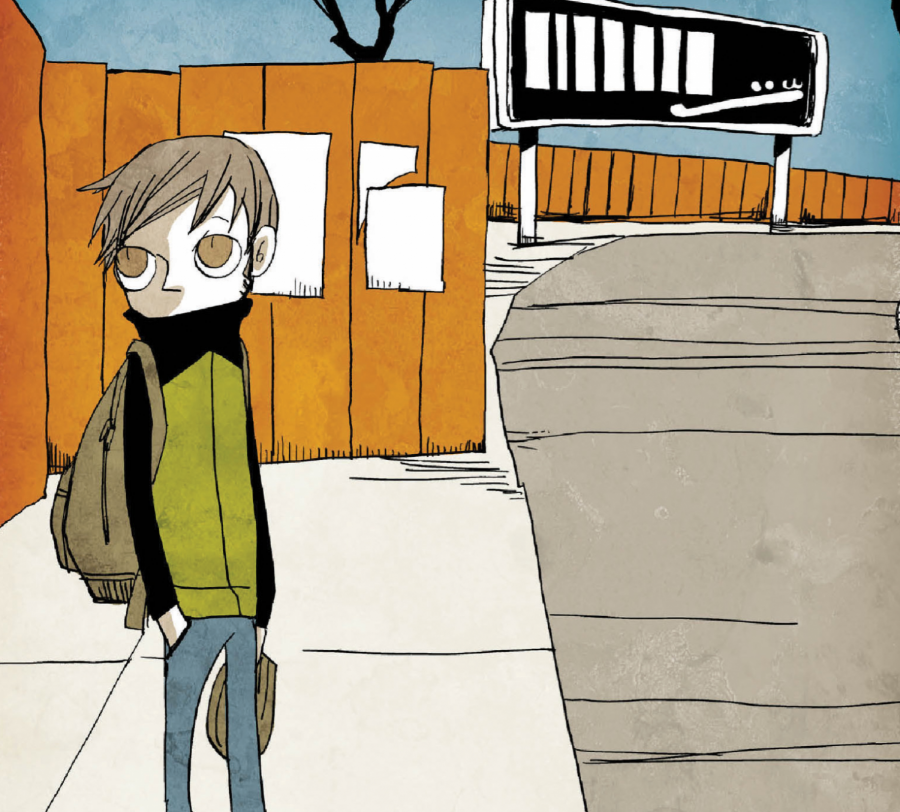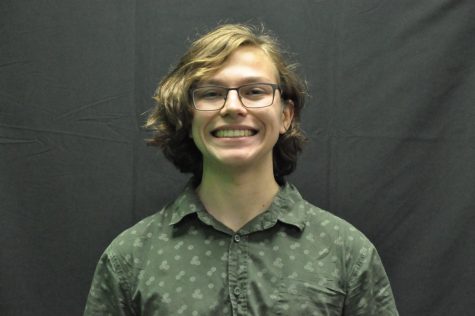Theme of the Month: Road Trip
February 12, 2020
Theme of the Month is an article series designed to investigate examples of film, television, and writing that fall under a certain category. This month’s theme (after a two-month hiatus!) is “Road Trip.”
“not simple”
A story within a story,
A book within a book,
A tale about the search for family,
For an emotional home.
Ian is a drifter with, in his own words, almost nothing to live for. Jim is a journalist with a certain “interest” in him, though it remains ambiguous if he sees Ian as a curiosity, subject, or friend. We’re shown his story in a nonlinear fashion, starting with the end and finishing with the beginning.
“Your life is amazing,” Jim once said to Ian. “After your reunion with that woman. I’ll start the story there. All right?”
Natsume Ono’s art style is minimalistic in both setting and color; gradients are rarely (if ever) used and character designs are plain. That’s not to say her artwork is in any way bad (and it’s quite the opposite). Special attention is drawn to the characters’ faces, which, in spite of their basic designs, convey a powerful array of emotions.
Ian’s story isn’t the only one we’re shown. Various characters pass through our focus, such as Ian’s incarcerated sister Kylie and Jim’s roommate/potential boyfriend Rick.
By turns tragic, sweet, and sad, “not simple” is a moving story that anyone can relate to. The plot may not be “simple,” but its compassion is clear as day.
“Michiko & Hatchin”
Picture Cinderella. Now picture an escaped convict crashing through her dining room window and offering to take her on a journey to find her missing father.
Such a scenario is our introduction to Hatchin, a young girl who lives under the tyrannical and abusive conditions of her stepparents and their rotten children. The convict in question is the free-spirited Michiko Malandro, a woman who has yet to move on from Hiroshi, her (supposedly dead) lover and Hatchin’s (missing) father. Though the two couldn’t be any more different, they band together on a road trip in search of the man who left a void in their lives.

“Michiko & Hatchin” is one of the prime examples of a show about the journey, not the destination. Much like “Cowboy Bebop” and “Samurai Champloo” (both directed by Shinichirō Watanabe, who served as a music producer here), the end goal of finding someone is more an option than a necessity. Along the way, they cross paths with several other characters with their own stories: Hiroshi’s childhood/gangster friend, Satoshi, police officer Atsuko, and crazed henchman Shinsuke among them.
The heart of the show is undoubtedly the relationship between the two leads. They bicker and argue over everything at first, big or small, but soon come to realize how much they need each other. Everything else (like the great samba-based soundtrack by “Soil and ‘Pimp’ Sessions”) is just icing on the cake.
“Bring Me the Head of Alfredo Garcia”
Characters move in “Bring Me the Head of Alfredo Garcia” but they don’t. Not really.
Warren Oates is Bennie, a wise-ass piano player who lives exclusively on a diet of cigarettes and booze. After two hitmen ask him the whereabouts of Alfredo Garcia (on behalf of crime lord “El Jefe,” whose daughter was impregnated by Garcia), Bennie sees an opportunity. He then hits the road with his girlfriend, Elita, to collect the bounty.
There’s something unplaceable about the use of location in the film. Director Sam Peckinpah’s Mexico is some sort of grimy Möbius strip, wherein Bennie can physically travel from town to town, but remain “stuck.” The characters feel resigned to their fates from the moment they’re introduced. Bennie and Elita discuss their future in one scene, with Bennie finally proposing to her properly, but we know that it won’t pan out. How can they end up happy in the world they live in?
“Bring Me the Head of Alfredo Garcia” is a melodrama, romance, dark comedy, and neo-western all in one. It’s flawed, sure, but it’s also one-of-a-kind.



